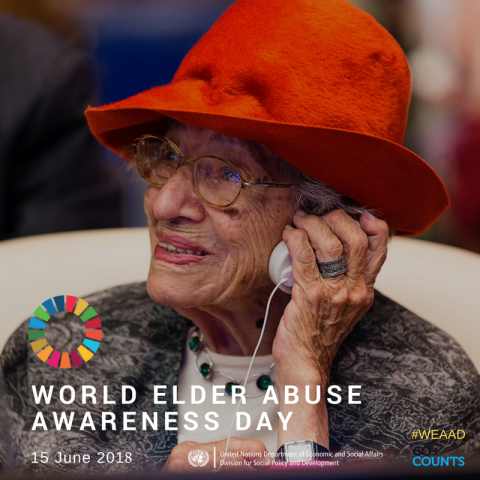Submitted by nsscadmin on

First observed by the United Nations in 2012, World Elder Abuse Awareness Day recognizes that nearly every country across the globe will see a substantial growth in the number of older persons in the next decade. With the population of older persons increasing it unfortunately also leads to an increase in the amount of elder abuse.
Nova Scotia is already seeing its population get older at an alarming rate. In the latest census, Nova Scotia was found to have one of the oldest populations in Canada. For the first time the population of people in Nova Scotia aged 65 and over (183,820) has eclipsed the population of those in the province aged 14 and under (133,825).
Many scam artists and fraudsters specifically target older adults. As many older adults get closer to retirement age they become targets for scam artists for many reasons. First and foremost, they are targeted because they routinely have at least a bit of a nest egg squirreled away that scam artists can prey on. The also prey on many older adults fears that they won’t have enough money to retire or upon their dreams of a better retirement to get them interested in “the next big thing” or “can’t miss investment.”
Some of the more common types of investment frauds include….
Affinity Fraud
Offshore Investment & Pension/Retirement Scams
Investment Seminar Scams
Boiler Rooms
Ponzi Schemes
The best way to defend yourself against investment fraud, no matter how old you are, is to become an informed investor. Make sure you know the warning signs of investment fraud. Know what to look for in a financial adviser and what questions to ask a financial adviser. Whenever you’re dealing with someone trying to sell you investments, always check their registration.
Are you or someone you care about a victim of financial abuse? Are you an elderly person that may be vulnerable to financial abuse? If any of the following applies to you or an elderly person you care about you or they may be vulnerable to financial abuse, or already be a victim of financial abuse:
- I find my bills confusing, making them difficult to pay.
- I don’t feel confident making big financial decisions alone.
- I don’t understand financial decisions that someone else is making for me.
- I give loans or gifts to family or friends I can’t afford.
- Members of my family, or others around me, are pressuring me to give them money.
- Someone is accessing my accounts without my full knowledge.
- Money appears to be missing from my accounts.
If one or more of those statements applies to you or someone you know they may be a victim of financial abuse. So, what can you do? Talk to someone you trust. Another friend or family member, lawyer, police officer, regulator, or manager at your bank or financial institution.
